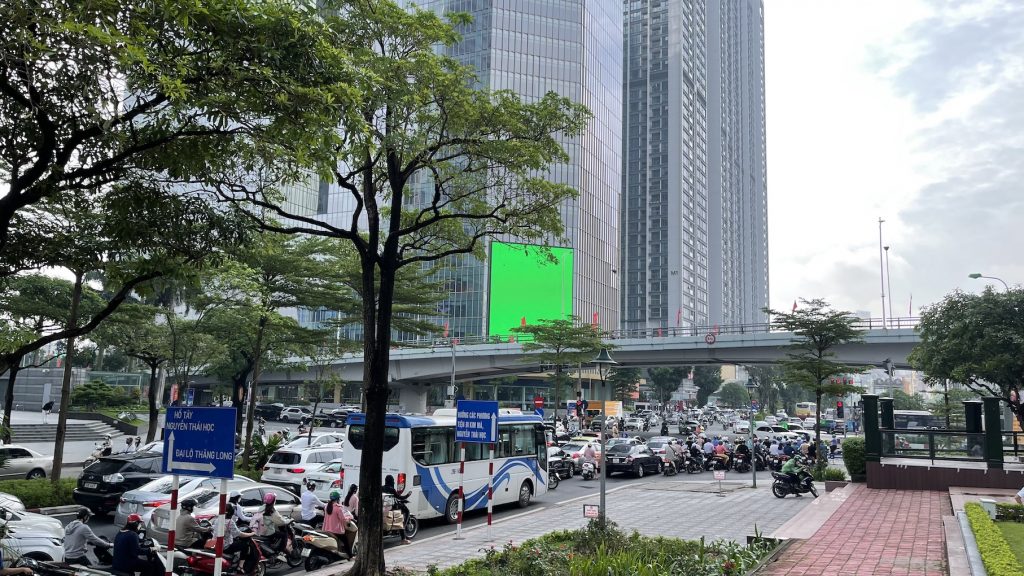
Street traffic in Hanoi (photo by Tsuneo Taguchi).
“Hanoi has changed a lot in the last ten years, hasn’t it?” I frequently hear this question from clients. Having been here the whole time, the changes don’t seem so dramatic to me.
But when I close my eyes and think back, the Hanoi of ten years ago looks quite different than the present. Back then, we didn’t even have traffic lights. Traffic police stood in major intersections blowing their whistles to direct the traffic. Ten years ago, you just had to be on the lookout for the occasional dog poop when walking around town. Now, the sidewalks are overrun by motorcycles during the morning commute.
Hanoi is an inland city located in a basin, so the air tends to stagnant. The city’s proximity to the border with China is likely another reason that PM2.5 levels are so high.

Most Japanese expat wives in Hanoi have apps on their phones to monitor the air quality. Unlike Japan, readings are almost always at the “unhealthy” level. Some have compared living in the city to being in a gas chamber, albeit a weak one.
Read the rest of this article here for a discussion of the problem and potential solutions. And find more great articles on the environment and the challenges of achieving the SDGs, on our new website Japan 2 Earth, sparking a transition on the environment and SDGs.
RELATED:
- ‘Japan 2 Earth’: New Website Launches to Help Communities Achieve Development Goals
- 5th Japan SDGs Award Winners and Their Initiatives for the Decade of Action
- Our Logo: A Play-on-Words with a Deeper Meaning
Author: Tsuneo Taguchi
Tsuneo Taguchi is currently the General Manager of the Overseas Real Estate Division of Daiwa Corporate, Ltd. and General Director of their Vietnam subsidiary, Hanoi Living. His column, [Vietnam! Moving Ahead Together] can be found on the new website, Japan 2 Earth, focusing on environmental challenges and solutions.








